Do you feel that your life has come to a stop due to depression? Do you feel exhausted and worthless? Do you lack the motivation and energy to do anything? Is it becoming increasingly hard to get through your day? You just might be suffering from crippling depression.
What is crippling depression?
Crippling depression is an alternate, mainstream term and a modern slang term for major depressive disorder (MDD) or clinical depression. However, people who suffer from this variation of depression explain it as a severe form of major depression with more intense symptoms, leaving the sufferers unable to function normally in their daily life. Someone with crippling depression and anxiety may not be able to do basic tasks in their day-to-day life, like waking up from bed or taking a shower, and it can also affect their ability to study, work or maintain relationships.
The term “crippling” is primarily used to denote the strong emotional pain, mental instability and low mood the sufferers experience in their life that makes them incapable of performing basic life tasks. Although it is described as “crippling” by sufferers, experts avoid using this term as it may be insulting, offensive, or harmful to individuals suffering from physical, cognitive or psychiatric disabilities. Hence the term crippling depression is not recognized officially or used medically. Alternative terms like “devastating” and “debilitating” are often used to describe MDD with severe symptoms.
Related: What Is Major Depressive Disorder?
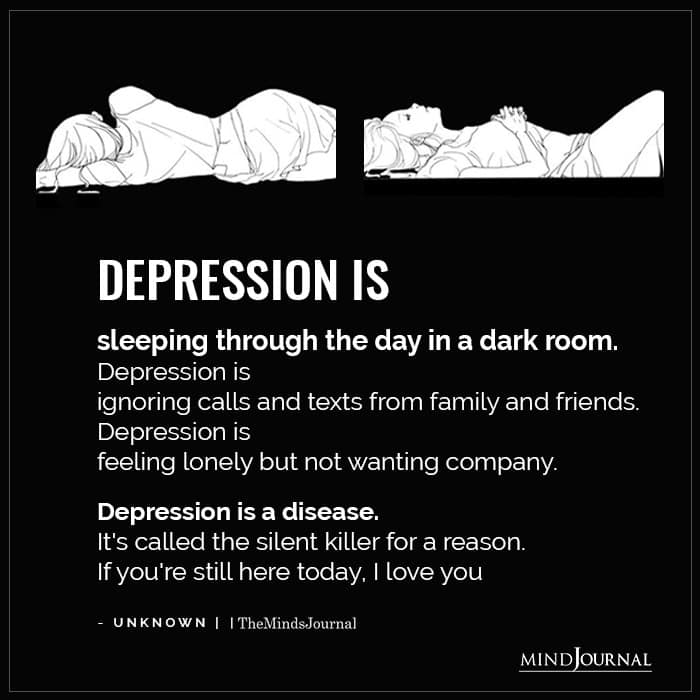
It is a common type of mental illness. According to studies, major depressive disorder is a highly prevalent psychiatric disorder with an average of 12% lifetime prevalence. While other studies reveal that about 27% of the population experience depression or depressive symptoms at least once in their lifetime.
What crippling depression feels like
Someone struggling with crippling depression may find it really difficult to carry out daily normal tasks like –
- Getting out of bed
- Eating
- Bathing or taking a shower
- Cooking
- Leaving the house
- Going to school or work
- Maintaining personal hygiene, like brushing their teeth
- Practicing self-care, like being physically active
They may also have difficulty sleeping or may suffer from insomnia. They experience a serious decline in daily functioning and their ability to live a healthy, normal life visibly reduces. They may also find it difficult to socialize and may avoid talking or interacting with others, leading to social withdrawal or self-isolation.
Related: What is Existential Depression? 15 Signs You Have It
A person with crippling depression or debilitating depression may also resist help from loved ones and refuse to seek help for the condition. Sufferers often report that they feel like laying in their bed all day and not doing anything at all. Such episodes of low mood and lack of motivation and energy may last for days, weeks or months, when left untreated or unaddressed.
Sadly, MDD can affect all aspects of life and everyday life can seem extremely mentally and physically exhausting and taxing. Although some factors may affect the onset of this mental condition, anyone can suffer from this form of depression regardless of their age, gender, nationality, race, culture or financial background. However, treatment involving therapy and medication can help someone manage the symptoms.
Related: What Depression Looks Like: The Hard-Hitting Truth
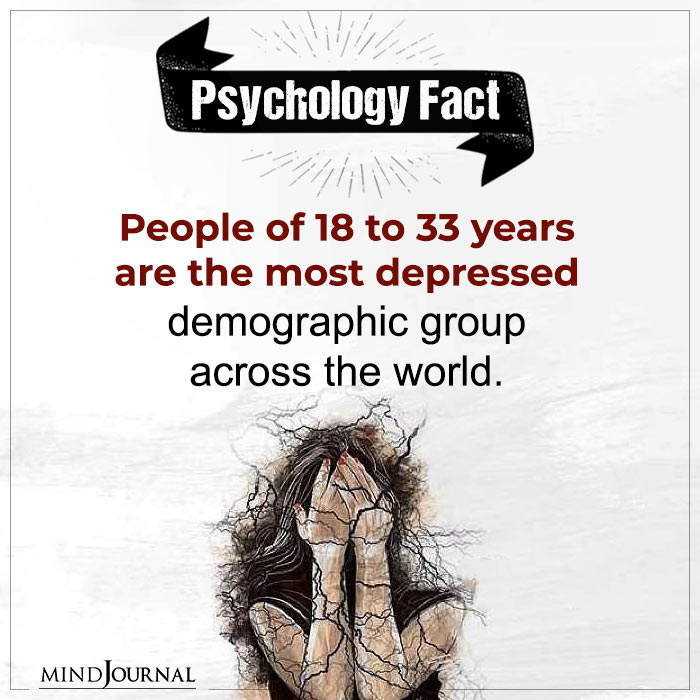
Signs of crippling depression
Here are some of the most common crippling depression symptoms, both mental and physical, that you need to know about –
1. Psychological symptoms:
- Stress and anxiety
- Constant feelings of sadness
- Low mood or feeling upset
- Inability to perform daily tasks
- Loneliness & emptiness
- Feeling hopelessness or helplessness
- Being pessimistic
- Irritability and impatience
- Difficulty concentrating
- Feelings of guilt, shame or worthlessness
- Self-harm or suicidal ideation
- Inability to enjoy pleasurable activities
- Low self-esteem
- Frustration or restlessness
- Indecisiveness
- Social isolation
- Extreme mood swings
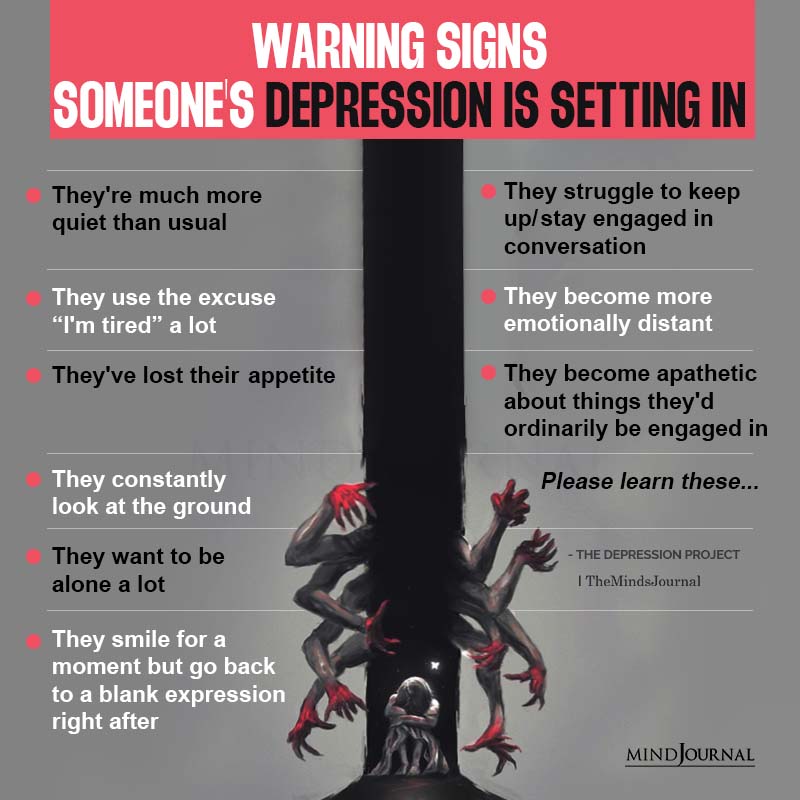
2. Physical symptoms:
- Fatigue or exhaustion
- Talking too fast or slow
- Insomnia or difficulty sleeping or waking up
- Changes in appetite
- Changes in weight
- Poor immune system
- Unexplained aches, cramps, and chronic pains
- Slow physical movements
- Frequent physical illnesses like the common cold
- Digestive issues
- Headaches
- Low energy
- Psychomotor agitation (body tics & fidgeting)
- Poor personal hygiene
Related: The 8 Types of Depression: Identifying Signs and Symptoms
Causes of crippling depression
Depression is a complex mental disorder and there are multiple factors that influence the development of this condition. However, experts are still not sure about the exact and precise causes of MDD.
Here are some risk factors that may influence the onset of crippling depression –
1. Genetic factors
Family and twin studies have shown that there is strong evidence for the influence of genetic factors in the development of depression. “Depression is a complex disorder with a heritability of 37% estimated from twin studies,” explains a 2017 study. So if you have a first-degree family member with depressive symptoms, it is likely that you may also develop crippling depression.
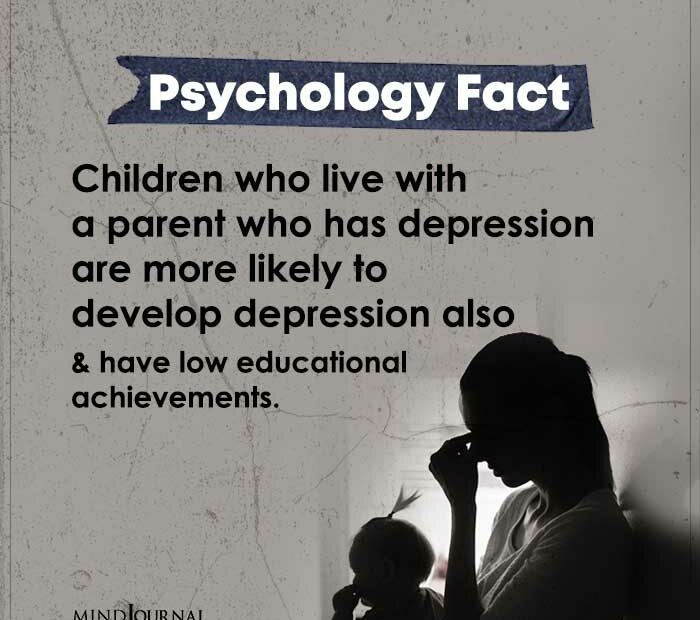
2. Biological factors
Significant structural changes in brain regions can often lead to the onset of depressive symptoms. Moreover, imbalance in brain chemicals and hormones can also be a contributing factor.
3. Environmental factors
Several environmental causes may also lead to the development of crippling depression, such as the loss of a loved one, childhood abuse, trauma, being bullied, financial challenges, health issues, unemployment, etc. “There are now numerous established environmental risk factors for depression, including poverty, negative family relationships, and parental divorce, child maltreatment, and other stressful life events more generally,” explains a 2015 study.
Related: What Are The Causes Of Depression?
Other risk factors for crippling depression may include –
- History of other mental illnesses
- Health or medical issues and chronic conditions
- Certain medications
- Persistent stress and anxiety
- Personality disorders
- Poor diet
- Sudden life changes
- Substance abuse
Treatment for crippling depression
Wondering how to deal with crippling depression? If you think you or someone you know is suffering from depressive symptoms, then it is best to consult a mental health professional like a psychiatrist or a psychotherapist. A mental health specialist can conduct an accurate diagnosis and suggest an effective treatment plan based on the patient’s symptoms and needs for recovery.
Crippling depression, also known as major depressive disorder (MDD) or clinical depression, can be treated with psychotherapy, medications, or a combination of both. Here are the available treatment approaches of this form of depression –
1. Psychotherapy
Psychotherapy, also known as talk therapy, involves the sufferer working with a licensed and experienced mental health professional. During the therapy sessions, the patient and the doctor talk about the sufferer’s thoughts, emotions, mood life experiences, past trauma, family life, and other topics to better understand the issue and devise a treatment plan. Therapy helps you to change damaging habits, thought,s and behavior patterns and helps you develop a more positive mindset to cope with the symptoms.
Some of the most recommended and effective psychotherapies for treating crippling depression include –
- Cognitive-behavioral therapy (CBT)
- Interpersonal therapy (IPT)
- Problem-solving therapy
Research shows that CBT is one of the most effective and evidence-based psychological therapies for the treatment of depression. “A sufficient number of researches have been conducted and shown the efficacy of CBT in depressive disorders,” explains a 2020 study.
Related: Treatment Of Depression
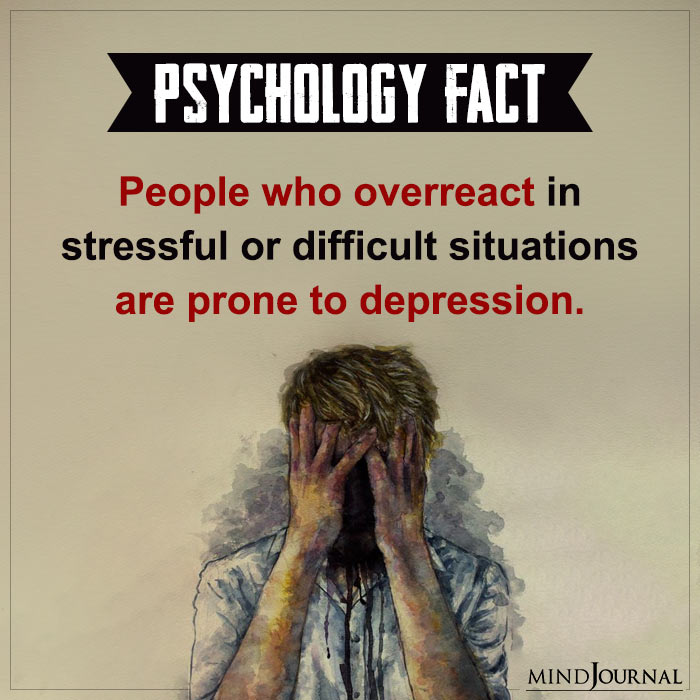
2. Medications
A doctor may prescribe antidepressants to reduce the symptoms of crippling depression. Antidepressants are useful in managing brain chemicals and hormones that affect our mood, mental health, and emotional wellbeing.
Common types of antidepressants include –
- Selective serotonin reuptake inhibitors (SSRIs)
- Serotonin and norepinephrine reuptake inhibitors (SNRIs)
Studies show that “antidepressants are effective against chronic, moderate and severe depression.” In fact, “The more severe the depression, the greater the benefits will be.”
A doctor may prescribe antidepressants in combination with psychotherapy for more effective treatment, as antidepressants may take some time to show results. Moreover, there are several side effects of taking antidepressants, such as nausea, weight gain, low libido etc. This is why it is crucial for the patient to work closely with their doctor to avoid side effects and reduce symptoms.
3. Electroconvulsive Therapy (ECT)
Another common crippling depression treatment option is ECT. When your crippling depression does not get better with psychotherapy and medication, a mental health professional may recommend electroconvulsive therapy. ECT is a safe and effective procedure where small electric currents are intentionally passed through your brain to trigger a controlled seizure. This can help to alter brain chemistry and reduce crippling depression symptoms.
“ECT is found to be beneficial and efficient in severe cases of depression where medication fails to bring results,” explains a 2021 study.
Related: Coping Strategies For Depression
Coping strategies for crippling depression
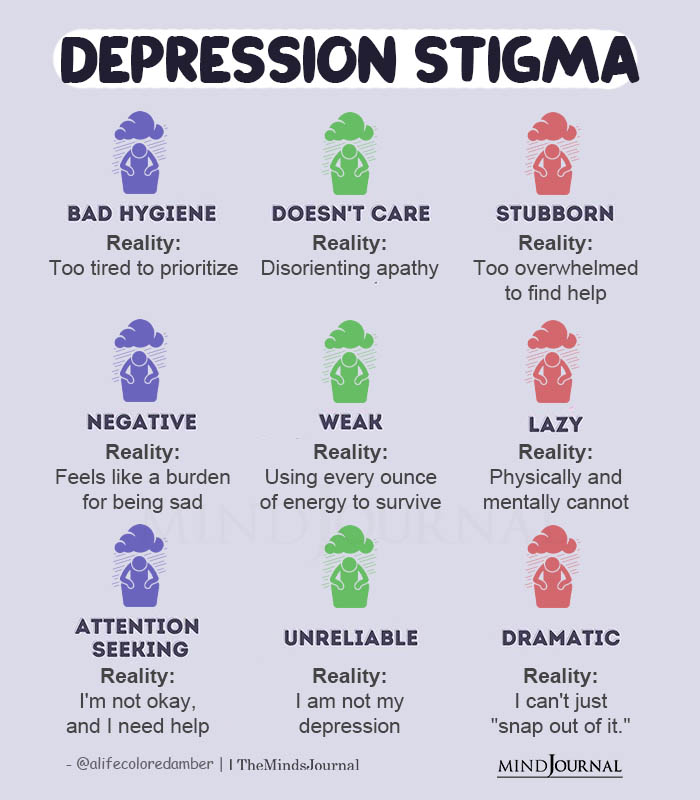
Apart from medical treatment, there are several other self-care coping techniques that can also help you to manage your symptoms. If you are wondering about how to cope with crippling depression, then here are some of these coping strategies are –
- Socialize frequently and spend time with family and friends
- Practice meditation
- Stay physically active or exercise regularly
- Volunteer
- Follow a nutritious diet
- Get enough sleep
- Practice gratitude and journaling
- Join a support group
- Avoid alcohol or drugs
Although these activities and strategies may seem impossible for you to perform in your current mental state, try to engage in activities more often. Take small steps and seek help whenever necessary.
Related: 5 Ways To Help Someone Who Is Dealing With Depression
Takeaway
Dealing with crippling depression or major depression can be really difficult and the symptoms can seriously affect your daily life. This is why it is crucial that you talk to a trusted loved one and seek medical help, as therapy and medication can significantly reduce the symptoms and enable you to live a normal, healthier life.
However, it is important that you stay committed to the treatment plan and follow the doctor’s instructions properly as it can often get worse if you stop taking medications or avoid attending your therapy sessions mid-way.
Always remember that you are not alone. Depression can feel debilitating, but it is treatable.
Related: Why We Cannot Continue To Overlook High-Functioning Depression?
Frequently Asked Questions (FAQs):
What’s the difference between depression and crippling depression?
Although technically crippling depression is an alternative term for depression or major depression, crippling depression can also occur due to Bipolar Disorder or postpartum depression. Hence, you may not be necessarily diagnosed with major depression when suffering from crippling depression.
How to help someone you love with crippling depression?
The best way to help a loved one with crippling depression is to encourage them to seek medical help and consult a mental health professional. With proper treatment involving medication and therapy, the symptoms can be alleviated.
What to do when I have crippling depression?
Make sure to visit a mental health professional like a psychologist or a psychiatrist and get an accurate diagnosis first. Based on your diagnosis, your doctor will devise a treatment plan to help you manage your depressive symptoms. You can also practice some self-help and relaxation techniques to improve your mood and reduce symptoms.
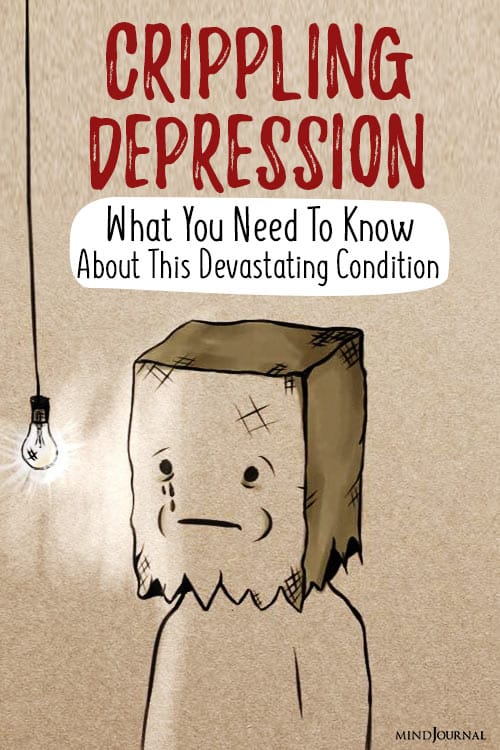
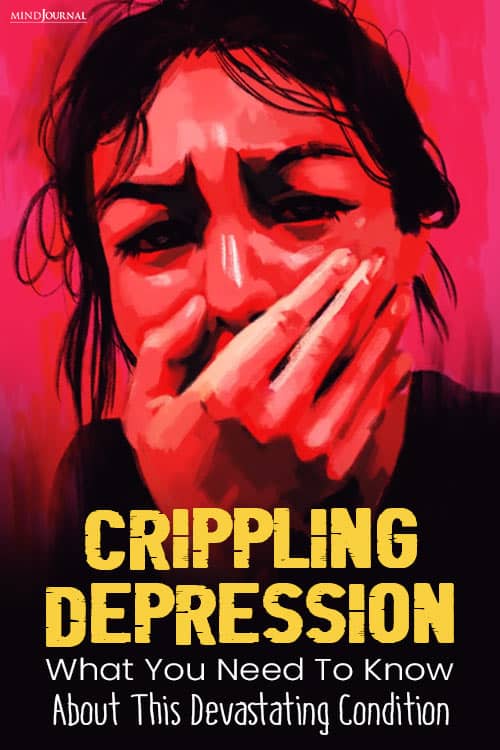

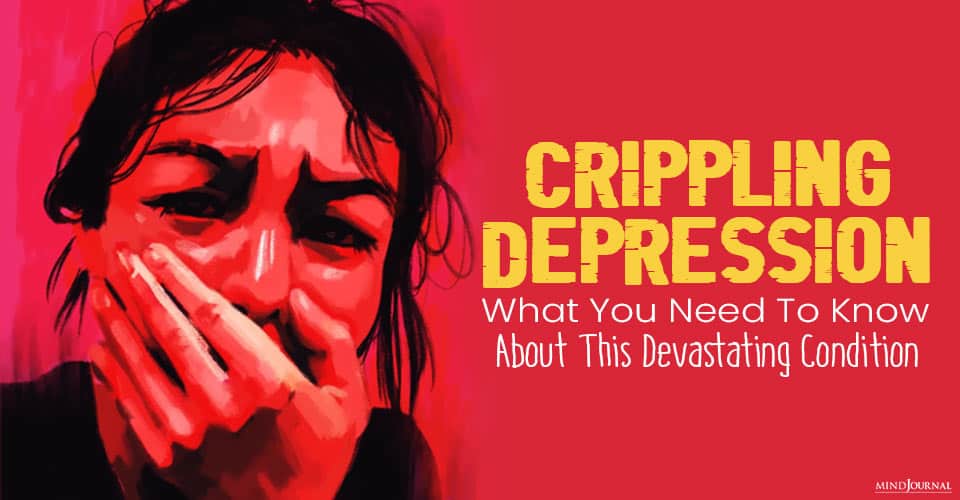
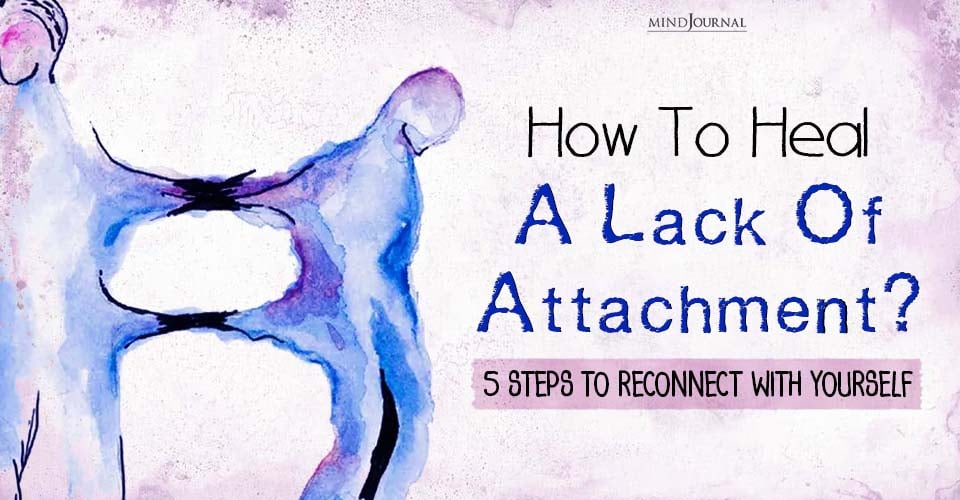

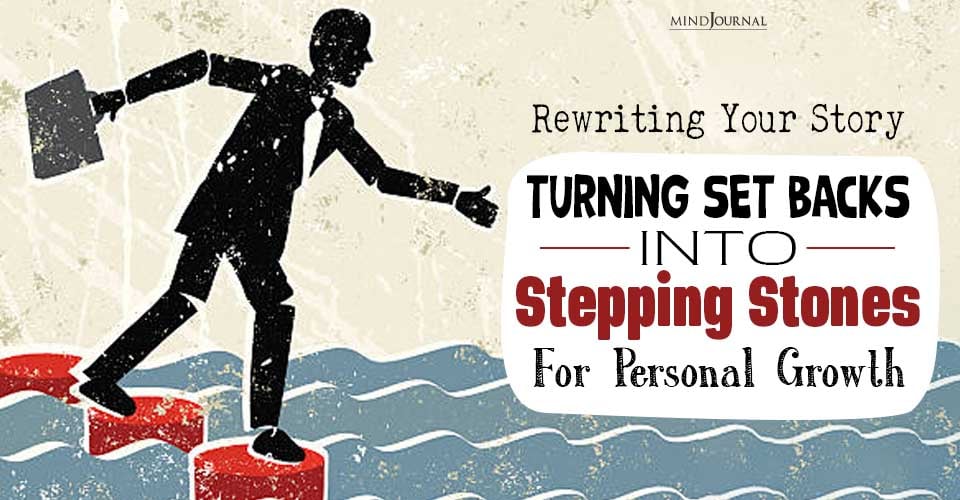
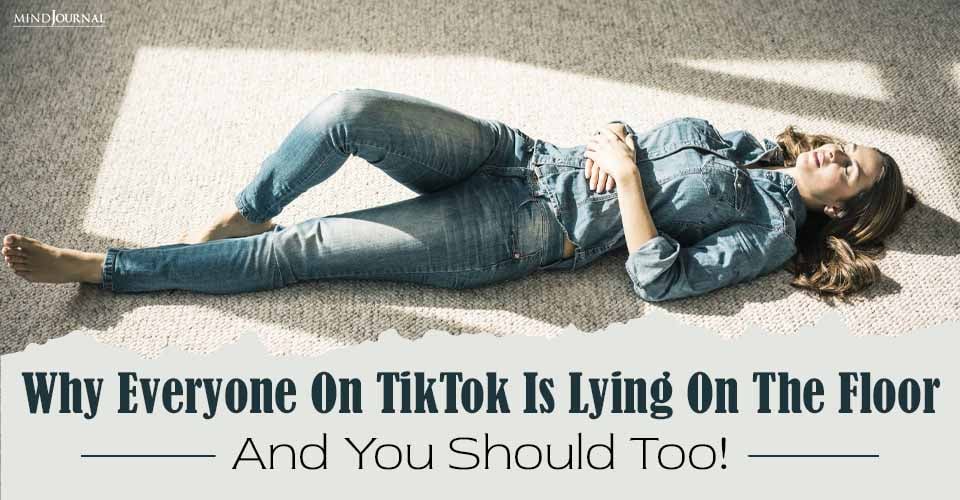
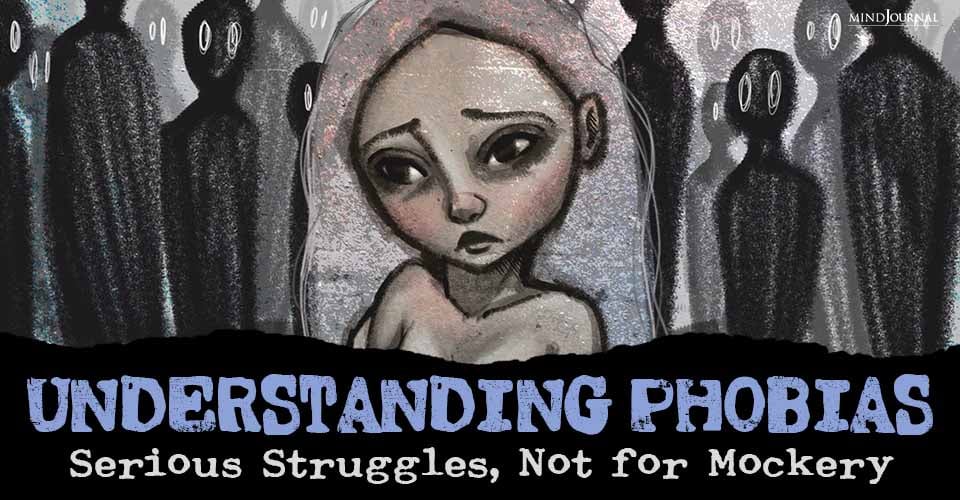
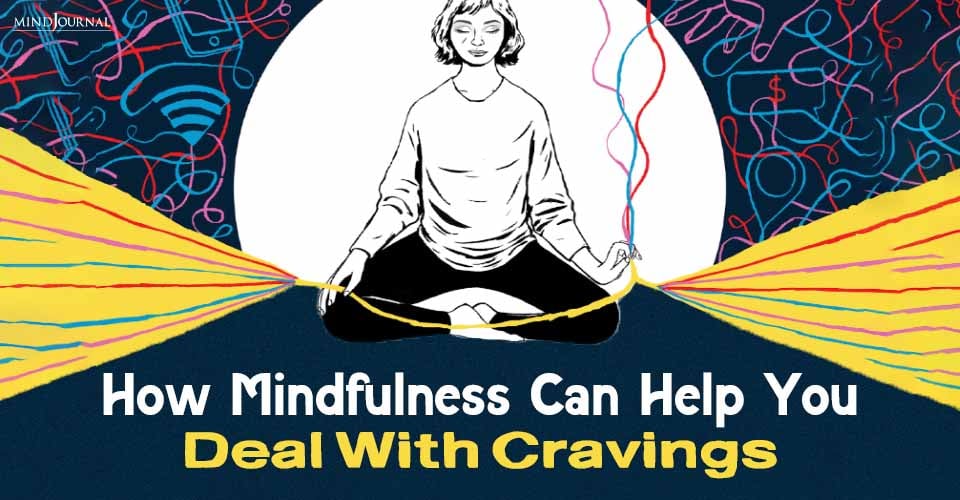

Leave a Reply